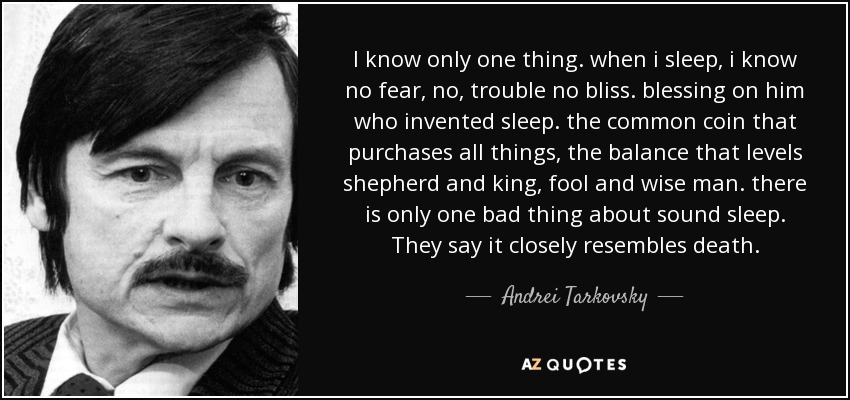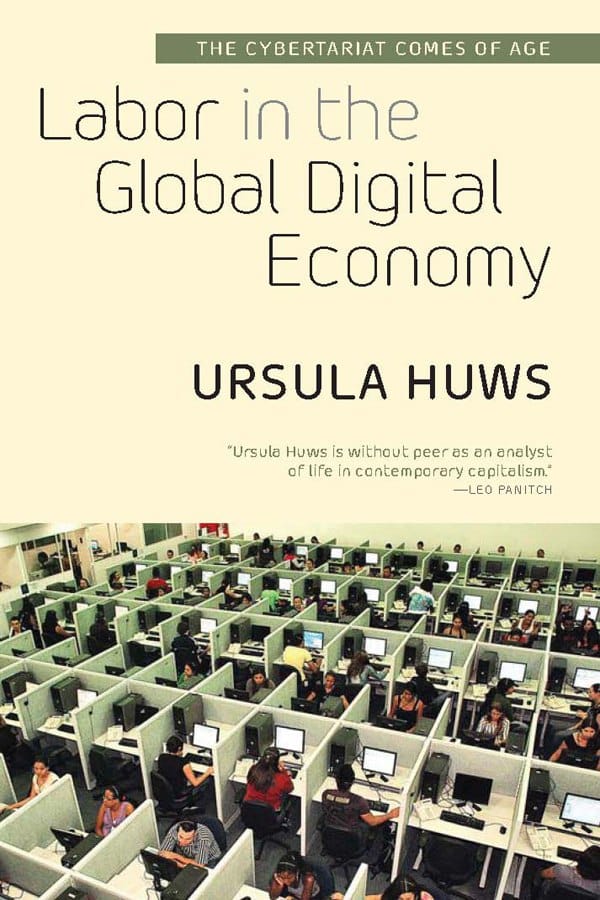The three sides of the strength pyramid are nutrition, training and rest. Most people who are serious about getting stronger pay close attention to the first two factors but frequently ignore the third - and suffer the consequences.
Sleep isn't a luxury for the human body; it's a genuine necessity. Extended periods of sleep deprivation can lead to amnesia, delusions and hallucinations. Shorter stretches cause forgetfulness, sour moods and irritability. Health authorities believe that people can go without food longer than they can without sleep.
If you're trying to gain strength, sleep becomes even more important because it's synonymous with recovery. If your body doesn't get to fully recuperate from a hard workout, there's no way it will be ready for the next one.
Sleep has been called many things - "the exit from consciousness," "a rendezvous with Morpheus" - but my favorite is "little brother of death." When you sleep, your higher brain centers go into temporary retirement so they can go about the essential business of repairing and recuperating. The downtime lets the muscular system and, more important, the nervous system recharge. It's as if the nerve connections to the cortical centers of the brain have been unplugged. The unconscious self continues working; otherwise the organism would perish. Digestive, respiratory and circulatory systems continue to function, while the unconscious portion of the personality manifests itself in the form of dreams.
Heavy training destroys tissue. In order to the tissue to be repaired, your body needs the proper nutrients and deep sleep. One of the key events that occur during sleep is that the body releases growth hormone, which is critical for making repairs, maintaining tonus in the muscles and keeping fat in the cells. Since the body makes growth hormones only during deep sleep, the question becomes:
How do you get to the place we call deep sleep?
The process of falling asleep has always fascinated me because I do love to sleep. I list it as one of my hobbies, along with reading fiction and doing pastels It wasn't until I researched the subject for a chapter of The Strongest Shall Survive that I finally learned what went on in my body each night.
Sleep doesn't come in a rush; it dances about in stages.
When you first lie down, you may drift off for a while, then awaken. The light rest is known as the "threshold of sleep." If you were to awaken completely during this stage, you'd most likely feel as though you hadn't slept at all.
Now comes the first genuine sleep stage, known as stage 1: Your body becomes very relaxed, your temperature starts to drop, and your heart rate slows. Researchers contend that you think disconnected thoughts in this stage, closer to daydreams than those that come later.
Steadily, you descend into stages 2 and 3. Body temperature continues to drop and heart rate slows further. After approximately an hour and a half you enter the deepest level of sleep, stage 4, the stage from which it's extremely difficult to awaken someone.
What happens next I find intriguing. You might assume, as I did, that after going to all the trouble to reach stage 4, you'd remain there until it was time to wake up. Not so. Instead, you go back through the stages, reentering 3, 2 and, finally, 1; however, this stage 1 is not identical to the stage 1 you passed through earlier, since you're still dreaming. While it's not the restful slumber of stage 4, you're further from the waking world than you've been thus far.
During this stage your eyes are in constant and rapid motion, a.k.a. REM, for rapid eye movement. Not only the eyes but also the entire body may be in motion. Arms and legs may thrash about, the heart may beat wildly and blood pressure may fluctuate as if you were experiencing a terrifying situation.
The Complete Fiction of H.P. Lovecraft
EPUB:
PDF:
It doesn't necessarily signify that you're having a bad dream; frantic body motions like that can occur during pleasant dreams as well. The first REM period lasts about 10 minutes. After that you go through the four stages of sleep once again. At the end of another 90-minute cycle you start dreaming again during the REM period. The actual length of each sleep cycle varies with the individual, but 90 minutes is typical. At the conclusion of the sleeping period, usually seven or eight hours, the body prepares itself to be awake as body temperature and heart rate begin to rise.
Fundamentally, there are two types of sleep: REM and non-REM. During REM sleep the brain is active, but you are not. Cranial activity increases, which results in eye and body movement. Non-REM sleep is a state of unconsciousness, without any dreams. Brain activity deepens into slow delta waves, and increased levels of oxygen flow slowly through the bloodstream. During a night of sleep people move through the four stages an average of six times, spending less and less time in the deep stage and longer periods in REM stages as the night progresses.
Scientists know that sleep is necessary for restoration, but they don't know exactly how that process occurs. They do think that the body does most of its repairing in stages 3 and 4, which are non-REM sleep. During REM sleep the mind is busy processing new information and experiences through the filters of past experiences.
Getting enough rest is critical to your overall health. A lack of sleep, even for a single night, can have a huge effect on your immune system. Research has shown that there's a 20 to 30 percent drop in immune system cells that fight cancer and viruses after only one night of sleeplessness. It if continues over several days, the percentage of decrease of immune system cells climbs drastically, but the good news is that you can bring the number of cells back to normal with a solid night's sleep.
So, how much sleep is enough?
That's an individual matter, and it depends on a great many variables. The notion that eight hours of sleep is proper for everyone can be traced back to England's King Alfred the Great, who informed his subjects that the virtuous should spend eight hours a day working, eight hours playing and eight hours sleeping, with no more than 20 minutes a day reserved for reminding oneself that assholes such as this Alfred fool need to butt out of our lives and piss off already.
A person who exercises regularly, eats well and doesn't work ridiculously long hours does just fine on seven or eight hours of sleep. Some can get by on much less, while others require more. My needs vary according to my physical activities and whether I'm involved in any project that taps my creativity. When I trained heavy, my sleep requirements went up by two hours a night.
Sleep is the most critical variable affecting my training, much more so than diet. What I eat doesn't affect my workouts nearly as much as how well I slept the night before, and that's true for a great many others.
People today sleep an average of only seven hours a night. They work almost 160 hours more each year than their grandparents did and get 20 percent less sleep. Work-related stress is the main reason so many suffer from sleep deprivation, but there's a large group, especially high school and collegiate athletes, who don't get enough rest because they stay up late at night studying. Or partying.
Even the most conscientious strength athletes will have one or more nights when they can't get their needed rest. It might be because of a full moon, or the position of their biorhythms or an upcoming job interview. The reason isn't important. What is important is to know what to do about your training when it happens to you.
Many believe it's best to skip the planned workout after a poor night's sleep. I don't. Skipping a workout for any reason sets a precedent, making it easier and easier to skip another. While I don't believe in missing a session, I do make adjustments . . .
One of the best things you can do is slip in a nap prior to your workout. A short nap can do wonders, and research shows that a short map is really more beneficial than a longer one. You don't want to drop off into the deeper stages of sleep before training because it will make you groggy. 20 to 30 minutes is plenty. I taught my strength athletes that when they stayed up all night preparing for exams. they should take a short nap after the test and then come to the weight room. It works wonderfully.
I know a nap isn't always possible, though, so what else can you do after a night when you needed get your needed rest? Taking some extra B-complex vitamins can make the difference between a crappy session and a productive one. I kept a stock of them in my gym bag and handed them out to droopy athletes. Caffeine is also useful, and a combination of caffeine and B-complex vitamins is even better.
Learn to make some adjustments in your workouts on sleep-deprived days.
Let's say it's your heavy day, and you planned on moving all of your numbers up, but you only got a few hours sleep because you were up most of the night with a sick child. Switch to a light-day workout, and then, if you get your needed rest, do your heavy day at the next workout. If you're still dragging, do a medium-day and put the heavy day at the end of your weekly program.
It's been my experience that endurance is affected far more than top-end strength when I don't get enough sleep, so on those days I skip my back-off sets and any beach work I had planned. I do them later in the week so my total load for the week stays the same. I've also found that when I'm tired, it's better to move through my routine quickly. If I dilly-dally, it makes me even more fatigued. On occasion I set up three stations and hurry through a circuit so I'm in and out of the gym in about half the time.
And I make damn sure I don't compound the problem by going to bed late again that night. Coming up short on sleep requirements doesn't constitute a severe situation, but doing if for several nights in a row will stifle progress in the weight room in addition to bringing on health difficulties.
I also find it beneficial to load up on all the supplements I know boost my immune system after a poor night's sleep. I double up on vitamins C, E, A and D to keep the odds in my favor.
It's easy to tell if you didn't get enough sleep when it happens occasionally, but what happens on the other nights? How can you determine if you're getting enough sleep consistently?
By paying attention to how you feel when you climb out of bed in the morning. If you drag out of bed and feel like death warmed over all day, you aren't getting enough. On the other hand, if you're alert in the morning and perky throughout the day, you're on the right trackj.
A Gallup Poll showed that half the population experiences insomnia at some time. For most it's short-term, usually due to some form of stress, but even if it only lasts for three or four days, insomnia can wreck a good training program. So here are some suggestions. They're not new, but you don't want to overlook them.
My personal favorite is to take a couple of calcium-and-magnesium tablets with milk bout 30 minutes before I go to bed. Magnesium is often referred to as "nature's own benzo," er, make that "nature's own tranquilizer." It usually comes combined with calcium, so make sure the cal-mag tablet you use has the minerals in the correct ratio or they won't be nearly as effective. There should be twice as much calcium as magnesium. I also take a gram of Vitamin C because I know it aids in the rebuilding process while I sleep - and it promotes dreaming, which I like.
While I'm waiting for the cal-mag to take effect, I watch country music videos, as they help me relax and take my mind off what I've been working on. That's my sleep ritual, and the act of following the same routine every night is yet another thing that helps me go to sleep.
Everyone needs to find a pattern that works and then stick with it.
Some people read to help them relax. Others take long showers or soak in the tub. Some like to listen to music or a rhythmic sound, such as a fan. Many prefer homeopathic remedies, such as Calms Forte and Quietude. Chamomile tea and sleep-promoting herbs like kava kava, amber, Polygala and ginseng are used by many people.
A light snack can be useful in promoting a more relaxed state, but it's smart to select foods that contain the amino acid tryptophan, which converts to serotonin in the brain, helping you to feel drowsy. Milk, yogurt, cheese, turkey and fish contain tryptophan.
Now, here are some things you should not do if you want to have a good night's sleep. Don't overindulge in alcohol. A little is all right, a lot is not. Too much alcohol before bedtime interferes with REM sleep, and that's the refreshing part. The same goes for food. Eating a large meal before bedtime isn't conducive to going to sleep because the food will trigger various systems, including the heart, to work harder. Also, the digestive tract may become upset and disrupt sleep even more.
Avoid stimulants such as caffeine and nicotine. While you're aware there's caffeine in coffee, tea and soft drinks you may not know that it's also in products such as Anacin, Dristan, Empirin, Excedrin and Midol.
A bit of light exercise, such as a short, leisurely walk, may be just the ticket to help you relax before bedtime, but any form of strenuous exercise or participating in a competitive sport will work against you. Vigorous physical activity stimulates the body, and it takes you some time to calm you down.
Don't take your work to bed. If you make your bedroom an extension of your office, you're sure to carry business problems with you at night. Your bedroom should be a cool, dark, sleep chamber.
You may have to do some experimenting to find out what works for you. But if you're having trouble getting a solid night's rest on a regular basis, make some changes in your lifestyle - quickly. The "magical one-third of your life" is a critical variable in your quest to gain strength.
Sleep Dealer (2009)
Sleep Dealer is an unusually thoughtful science fiction film,
using the
speculative energy of the genre to explore some
troubling and complex
contemporary issues.
I sent funds for a copy of this book a while back.
It still hasn't arrived.
I can't sleep, lying awake there in bed,
trying not to think about what could have happened,
why it hasn't arrived yet, who would wanna rip me off like that.
Maybe the seller.
Might be the postman. How can I know . . .
what if it got delivered to a neighbor my accident?
Which neighbor could it be. He's likely sleeping peacefully.
What am I gonna do about it, just lie here and let the sonuvabitch get away with that.
I think not!
trying not to think about what could have happened,
why it hasn't arrived yet, who would wanna rip me off like that.
Maybe the seller.
Might be the postman. How can I know . . .
what if it got delivered to a neighbor my accident?
Which neighbor could it be. He's likely sleeping peacefully.
What am I gonna do about it, just lie here and let the sonuvabitch get away with that.
I think not!
Well, actually, I think much . . . too . . . much . . .
Sweet dreams aplenty to all!







No comments:
Post a Comment